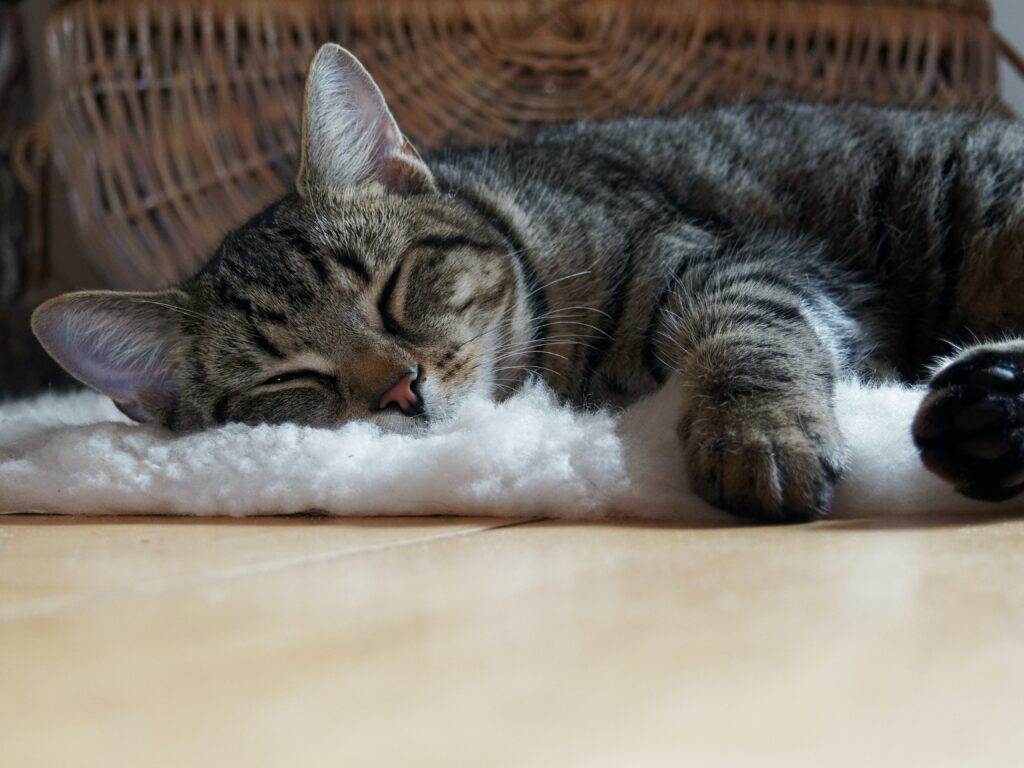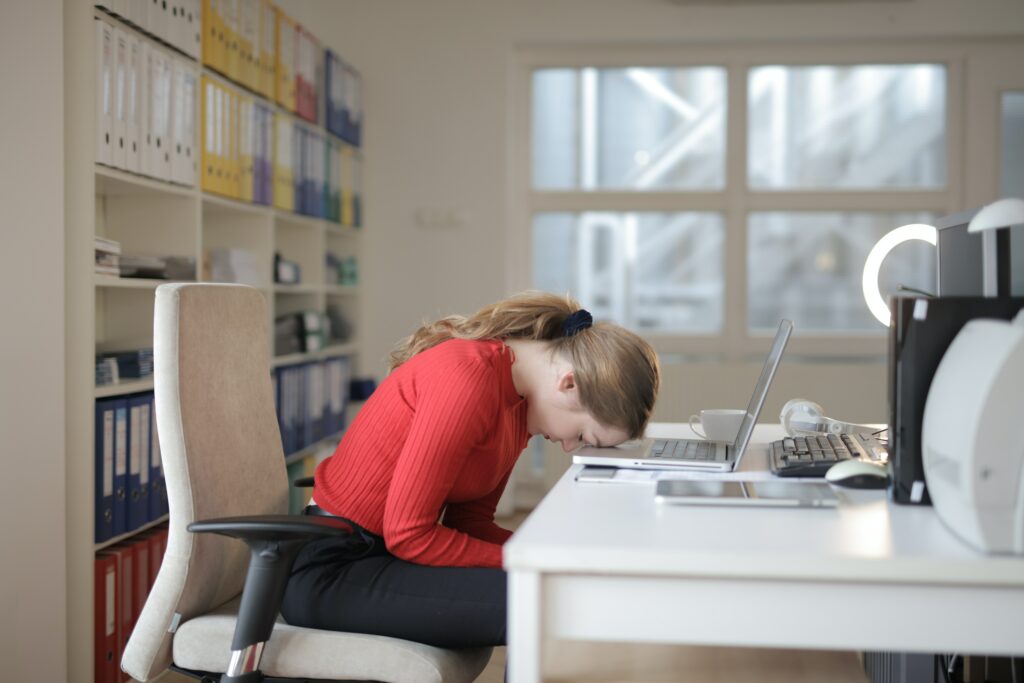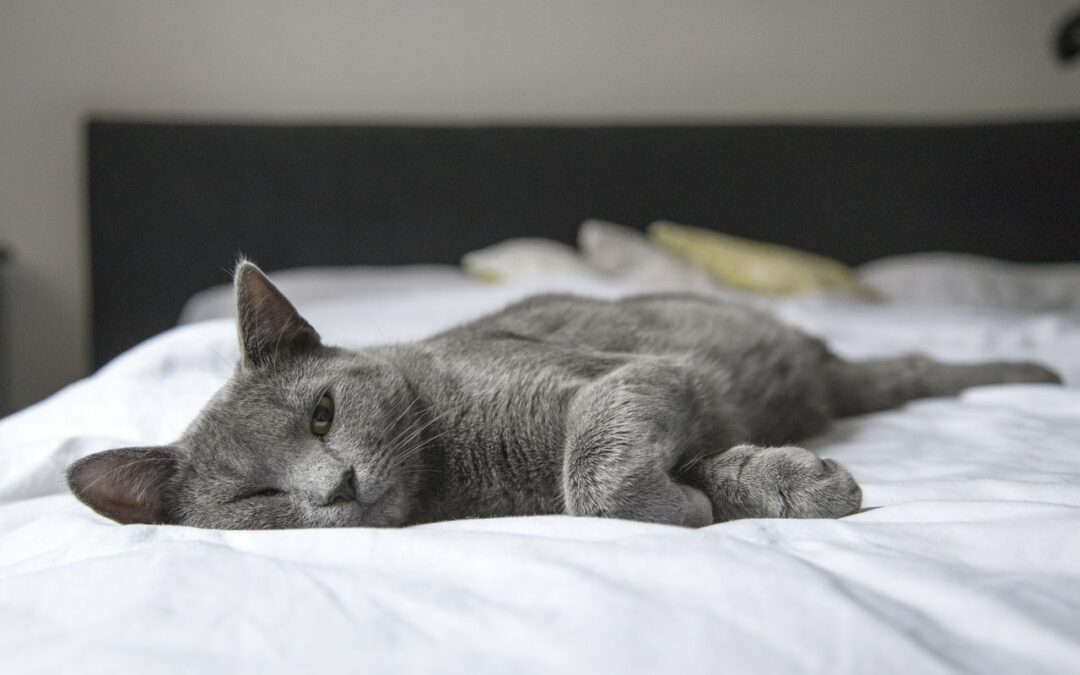Sleep is a super important part of mental wellness. Feeling rested helps you make good decisions and to feel energised and calm. On the other hand, dealing with sleep deprivation might make it difficult to control your emotions and keep up with life’s challenges. This post is the first part of a long piece about 12 tips to sleep better.
If like me you have noticed that whenever you don’t sleep well you are cranky, more sensitive, and very hungry, this might help you out.
12 Tips to sleep better at night (Part 1)
Analyse your triggers
Whilst most of the tips in this post are general medical recommendations, this is my own suggestion.
As the princess from the tale The Princess and the Pea, I have started to pay attention to the environment where I sleep probably more than your average Jane. That’s how I have lately discovered that the reason I sleep so poorly when I travel back home to Malaga is that the air is so much drier than in Glasgow, that my nose becomes stuffy. If I can’t breathe, it’s only natural that I won’t be able to sleep, right? This is why I have started drinking plenty of water when I’m staying with my parents (I should really just do that in general, but oh, well…) and using natural, saline nasal sprays before bed.
What a lovely way to start a post, talking about noses.
For you, it might be something different. You might want to keep a sleep diary, not to write about your dreams (unless you want to!), but to keep track of how you are sleeping and identify factors that might be affecting you. You could also just try the 11 following tips to sleep better, but believe me, you’ll save time if you start here.
Block out light and minimise noise
This should go without saying, but British people don’t seem to realise that exposure to bright light can mess with your circadian cycles. Otherwise, they would use blackout curtains or/and real blinds. In Southern Europe, blinds are thick and sturdy; here, they are white. How are white, fabric blinds going to block the light out? Considering this country gets up to 17 hours of daylight in summer, it would make sense that there exist real blinds that stop the light from coming into your bedroom.
However much I love blackout curtains, though, I realise they are not the most affordable solution. They are not something you can carry with you when travelling, either. A lovely sleep mask will be your ally, and they are so light and small that you can use them anywhere.
On the other hand, minimising noise is another basic factor for a good night’s sleep. However, this might be even less controllable than light. If you are staying in a noisy area, you might want to consider using noise-cancelling headphones, if you can. White noise machines can help too.

Create a cosy sleeping environment
Analyse the place where you are sleeping. This is more about the way your room looks and feels than anything else.
Messy bedrooms can lead to anxiety, and anxiety is not known to be a friend of good sleep. Going to sleep in a cluttered, messy room signals to your brain that something isn’t right. Having too many items in sight might distract you from sleeping. So keeping your place tidy is vital to get a good rest.
Additionally, keep your room at a comfortable temperature, between 16ºC and 18ºC. Too cold or too warm and you won’t be able to sleep comfortably. We don’t always have complete control over temperature, but warm, soft pyjamas and a good duvet are ideal in winter. In summer, especially in the UK where it’s never that warm to start with, a summer duvet (4.5 togs or below!) will be perfect. If it’s too warm and sunny and your room receives a lot of light through the day, try closing your blinds in the afternoon to stop the room from overheating. Sometimes sleeping with the windows closed works a lot better than having them open “for the breeze to pass through.”
As a Spaniard, I can confirm that the fresh breeze may never come in summer.
Also, did you know that the layout of your bedroom can affect the way you sleep too? I have a friend who can only sleep if her head is pointing West, who knows why. This guy, who I love, talks about feng shui and how to position your bed. Give it a try, if you know you’re not sleeping well, but can’t really point out why that might be.
https://www.youtube.com/watch?v=LaAVFI2Cr-s
Avoid alcohol before bed
Even though alcohol might make you feel sleepy, as it is a depressor of the nervous system, it’s also known to alter the production of melatonin, sleep breathing (causing apnea and snoring), and sleep patterns.
Alcohol can take more than 6 hours to leave your body (depending on the number of drinks, of course). So be mindful of how this might affect your sleep. A glass of wine or two with dinner might not have a big effect, but a big night out could tire you out in more than one way.
Don’t eat late in the evening
Digestion is thought to be less efficient at night than during the day, which might be the reason why going to sleep on a full stomach can lead to heartburn, gastrointestinal discomfort, and reflux. This is certainly not helpful when you are trying to sleep better.
Certain foods might affect your sleep worse than others. I’m planning to write a blog post about that soon.
However, going to sleep hungry can keep you awake too and lead you to get up and attack the fridge in the middle of the night. Having dinner around 8 pm is what works better for me, although I admit I eat later when in Spain (habits). It’s also easier for me to sleep on an empty stomach than anything else (always said I’d rather sleep than eat).

Follow consistent sleeping times
The circadian rhythm that we have mentioned already basically acts as your body’s biological clock, which tells you when to wake up, when to sleep and when to eat, among other things. It is naturally aligned to the natural day-night cycles, but it can also be trained or disrupted, so we need to take good care of it.
One of the most effective ways to get better sleep is to be consistent with your sleep schedule. Waking up early during the week and late during the weekends alters the circadian rhythm and worsens the quality of your sleep.
The goal should be to always get at least 7 hours of slumber, but the best way of doing this is controlling what time you go to bed, not what time you wake up as sometimes you won’t have control over that. So, consider what time you need to be up and work backwards to identify the best hour for you to go to bed. Then, follow this routine as much as possible. Your body will naturally learn this new cycle and it will be easier for you to fall asleep quickly and get up energised.
Create a relaxing night routine
I’ve been seeing this ad for men’s moisturiser lately (literally 2 days ago, a few times in just a couple of hours) where the main guy says something along the lines of, “Skincare routine? We don’t have time for that!”
Regardless of how the thought of men not having 10 minutes to spend on their faces whilst women are expected to spend at least 30 applying 7 different types of creams makes me feel, this is absurd on so many levels.
Blue light is one of the main disruptors of sleep patterns. It affects the circadian rhythms with our bodies thinking that the blue light from phones, televisions, and computers is daylight. Therefore, the best way to avoid this is to stop using these devices a while before going to bed. It is recommended to do so 2 hours before bed, but I don’t think you need that much.
This is what I would call a nighttime routine. An hour or two before bed, you do your skincare/hygiene routine of brushing your teeth, washing your face, maybe taking a shower (I like showers at night better than morning, what up). Then you can do some sort of meditation or reflection on the day, maybe writing down in a diary. Alternatively, you can read a little, as long as it is real, physical paper (or I guess a Kindle).
This will create a differentiation between the whole craziness of the day and the more relaxing time to sleep. Take this hour (or 30 minutes, or 15 minutes, whatever time you have for it) to take things slowly, consciously, and calmly.
I bet men can do this as well as women or even better. I don’t know what the hell men might be doing at night that stops them from spending 10 minutes on something as simple as skincare. Come on, boys, grow up…
Have you tried any of these tips to sleep better before? I’d like to know how it went for you. For me, the key is to be aware of your patterns and how your lifestyle and home might be stopping you from having a sweet night of sleep.
This was going to be a huge post. I always try to tell a lot in very little space, as I want to be as informative as possible, so here are the first 7 tips to sleep better. The rest of them I reserve for a future blog post that will be up really, really soon. Look out for it!
Thanks for being here.
Sofia

